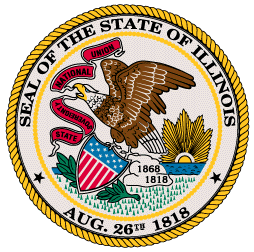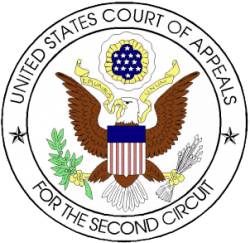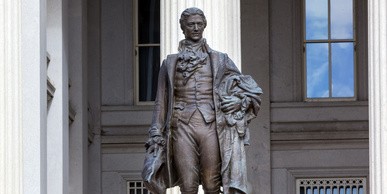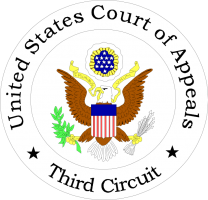The U.S. Court of Appeals for the Eleventh Circuit recently confirmed that an entity is not a “debt collector” under the federal Fair Debt Collection Practices Act, where it does not regularly collect on debts owed to a third party, and debt collection is not the principal purpose of the entity’s business, even when the debt was in default at the time the entity acquired it. A copy of the opinion is available at: Link to Opinion. A lender sued a borrower to collect credit card debt. The parties entered into a settlement agreement, but the borrower failed to pay…
Posts published in August 2015
The U.S. Court of Appeals for the First Circuit recently denied a bank’s request pursuant to the Bank Secrecy Act to shield certain business records from being produced and used in a putative class action, holding that none of the subject documents constitute a draft SAR, or reflect the decision-making process as to whether a SAR should be filed, the process of preparing a SAR, or an attempt to explain the content of a SAR post-filing. A copy of the opinion is available at: Link to Opinion. The lead plaintiffs sued the bank, alleging that a customer used his accounts…
The U.S. Court of Appeals for the Eleventh Circuit recently held that a putative class action plaintiff provided his “prior express consent” under the federal Telephone Consumer Protection Act (TCPA) by listing his cell phone number on an information sheet he provided to the caller. A copy of the opinion is available at: Link to Opinion. The plaintiff donated blood plasma in return for payment at a blood plasma collection center owned and operated by the defendants, who buy and resell blood products. The plaintiff filled out several documents incident to the donations, including an information sheet that asked for his…
As you may recall, an Illinois appellate court held in 2012 unreported opinion that mortgage servicers may be subject to Illinois Collection Agency Act, 225 ILCS 425/1, et seq. (ICAA), including the licensing and other requirements of the ICAA. The Court held that, “[d]epending on what a mortgage servicer does other than elicit and receive routine or timely mortgage payments and attempt to collect delinquent payments, it may or may not be a debt collector” under the ICAA. A copy of the opinion is available at: Link to Opinion. The State of Illinois recently amended ICAA to among other things: Clarify…
The U.S. Court of Appeals for the Second Circuit recently rejected claims by borrowers who failed to maintain hazard insurance on their mortgaged properties that they were overcharged by their loan servicer for lender-placed insurance, holding the claims were barred by the filed rate doctrine. A copy of the opinion is available at: Link to Opinion. The plaintiffs, borrowers who failed to purchase hazard insurance on their homes as required by the terms of their loans, sued their loan servicer, who purchased lender-placed insurance (LPI) from defendant insurers at rates approved by the applicable regulatory agencies, then sought to collect…
The U.S. Court of Appeals for the District of Columbia Circuit recently held that a bank has standing to challenge the constitutionality of the federal Consumer Financial Protection Bureau and the recess appointment of its director, reversing the district court and remanding. However, the Court also held that the plaintiff bank lacked standing to challenge the constitutionality of the federal Financial Stability Oversight Council and the government’s authority to liquidate “too big to fail” financial companies, affirming the district court’s judgment on those claims. A copy of the opinion is available at: Link to Opinion. The plaintiff bank joined by a…
The U.S. Court of Appeals for the Eighth Circuit recently affirmed the dismissal of a class action by Missouri borrowers alleging that various assignees and purchasers of second mortgages charged or collected illegal fees in violation of the Missouri Second Mortgage Loan Act (MSMLA), holding that plaintiff borrowers lacked standing to sue the defendants who did not service their loans. In so ruling, the Eighth Circuit refused to apply a state appellate court ruling made during the long history of this action, instead ruling that the MSMLA has a three-year statute of limitations, and that this three-year statute of limitations…
The U.S. Circuit Court of Appeals for the Fourth Circuit recently held that, in order for a borrower to recover under Maryland’s Credit Grantor Closed End Credit Provisions (CLEC), the borrower must have repaid more than the original principal balance of his or her loan. Additionally, the Court held that a motion under Federal Rules of Civil Procedure 23(d)(1)(B) to provide notice to putative class members can (and in most cases should) be denied at the pre-certification stage because ordinarily there was little danger of prejudicing “absent class members” unless there is substantial evidence of “reliance interest” even at that…
As you may recall, the Supreme Court of California is currently reviewing two significant appellate court rulings involving the “one form of action” rule: 1. Coker v. JP Morgan Chase Bank, N.A., 218 Cal. App. 4th 1 (4th Dist. 2013); and, 2. First California Bank v. McDonald, 231 Cal. App. 4th 550 (5th Dist. 2014). In Coker, to resolve a nonjudicial foreclosure, the mortgagee of a purchase-money loan conditioned a short sale on the borrower’s agreement to remain responsible for any deficiency. A copy of the Appellate Court’s ruling in Coker is available here: Link to Opinion. McDonald involves a…
The U.S. Court of Appeals for the Eleventh Circuit recently held, in a case of first impression, that a creditor violates the bankruptcy discharge injunction by filing a proof of claim on a debt that was previously discharged in another bankruptcy proceeding. A copy of the opinion is available at: Link to Opinion. Husband and wife debtors filed a Chapter 13 bankruptcy petition in 2006. The case was converted to a Chapter 7 liquidation, and the subject debt, a deficiency of approximately $11,000 on a sales contract for a mobile home, was discharged in 2009. In 2012, the debtors filed…
The U.S. Court of Appeals for the Second Circuit recently denied the defendant debt buyer’s petition for panel rehearing, or, in the alternative, for rehearing en banc, as to its ruling (discussed here) that federal National Bank Act preemption applicable to the loan originator does not allow a non-bank debt buyer to charge interest in excess of state usury limits. In so ruling, the Second Circuit noted that, “[a]lthough it is possible that usury laws might decrease the amount a national bank could charge for its consumer debt in certain states (i.e., those with firm usury limits, like New York),…
The U.S. Court of Appeals for the Third Circuit recently held, in a matter of first impression among all of the Courts of Appeals, that a debt collector bears the burden of proving that a communication with a third party falls within the exception for location information contained in subsection 1692b of the federal Fair Debt Collection Practices Act (FDCPA). A copy of the opinion is available at: Link to Opinion. In 2005, a borrower obtained a loan in the amount of $43,300 secured by a mortgage. The mortgage went into default in 2011. The borrower called the mortgage servicer…











